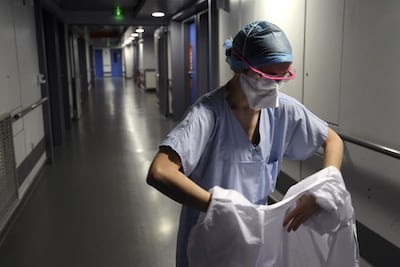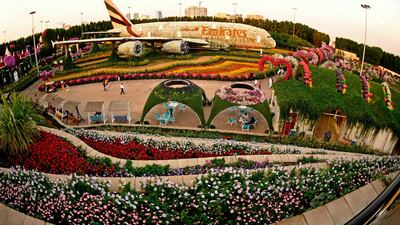The UAE is approaching its 49-year anniversary, which is an opportune time to reflect on progress since the formation of the Union in 1971. With this in mind, it is also the right time to create a blueprint for the future. On Saturday, details of such a blueprint emerged in the form of the UAE's new vision for the next half-century.
The vision, along with other recent measures, offers a strategy to steer a steady course through today’s challenging global economic climate. Underpinning it is an understanding that short-term recovery must complement post-pandemic growth.
Among the rare silver linings that have accompanied the hardship brought by Covid-19 is an accelerated recognition of the need to make economies more resilient. While the Emirates has worked towards realising a more robust and diversified economy for many years now, the new vision represents the next stage of bringing those plans to fruition. It outlines several priority areas, including the growth of tech and AI research, encouraging entrepreneurship and boosting the scientific and medical sectors. At its core, the vision is a drive to attract skilled individuals, as well as the continuing training of Emirati professionals.
In parallel, the UAE also announced an expansion of the Golden Visa scheme, introduced last year. Previously reserved for certain "exceptional workers" and investors, groups that qualify now include PhD holders, scientists, data experts, computer and electrical engineers and AI and programming specialists.
Golden visas are valid for 10 years, different to standard employment visas which need updating ever 3 years. The residency offered by the visa extends to spouses and children. Golden Visas also allow recipients to remain in the country while not in full-time employment, on a six-month multi-entry visa to facilitate the establishment of their business. After this period the visa can be converted into residency status.
Perhaps the most innovative aspect of the new scheme is that pupils from around the globe with top marks are now eligible to apply. If they succeed, their families can join them.
The inclusion of high-achieving students extends a lifeline to young people and allows them to plan for their future. This generation of graduates has seen employment prospects diminished considerably by the pandemic. By including their families, policymakers signal their understanding that behind every high-achieving young person is a family, who serve as a crucial support structure in their lives.
The expansion also includes medics and tech specialists, a class of professionals that the pandemic has proved (if any further proof was needed) to be a critical pool of human capital in any future-proof economy.

Recent weeks have seen a series of announcements that fundamentally alter, for the better, the lives of UAE citizens and residents. Changes to family law, support packages for struggling businesses and freelancers and the expansion of the Golden visa programme will complement the new 50-year vision as it launches.
They are a statement of confidence in the country's understanding of what needs to done in the wake of the pandemic. Sheikh Mohammed bin Rashid, Vice President and Ruler of Dubai, in August spoke of his ambition that the UAE's economy recover from the pandemic quicker than that of any other nation. The fact the UAE announced this comprehensive array of policy solutions in under two weeks, and unveiled a 50-year vision, makes this a real possibility.


